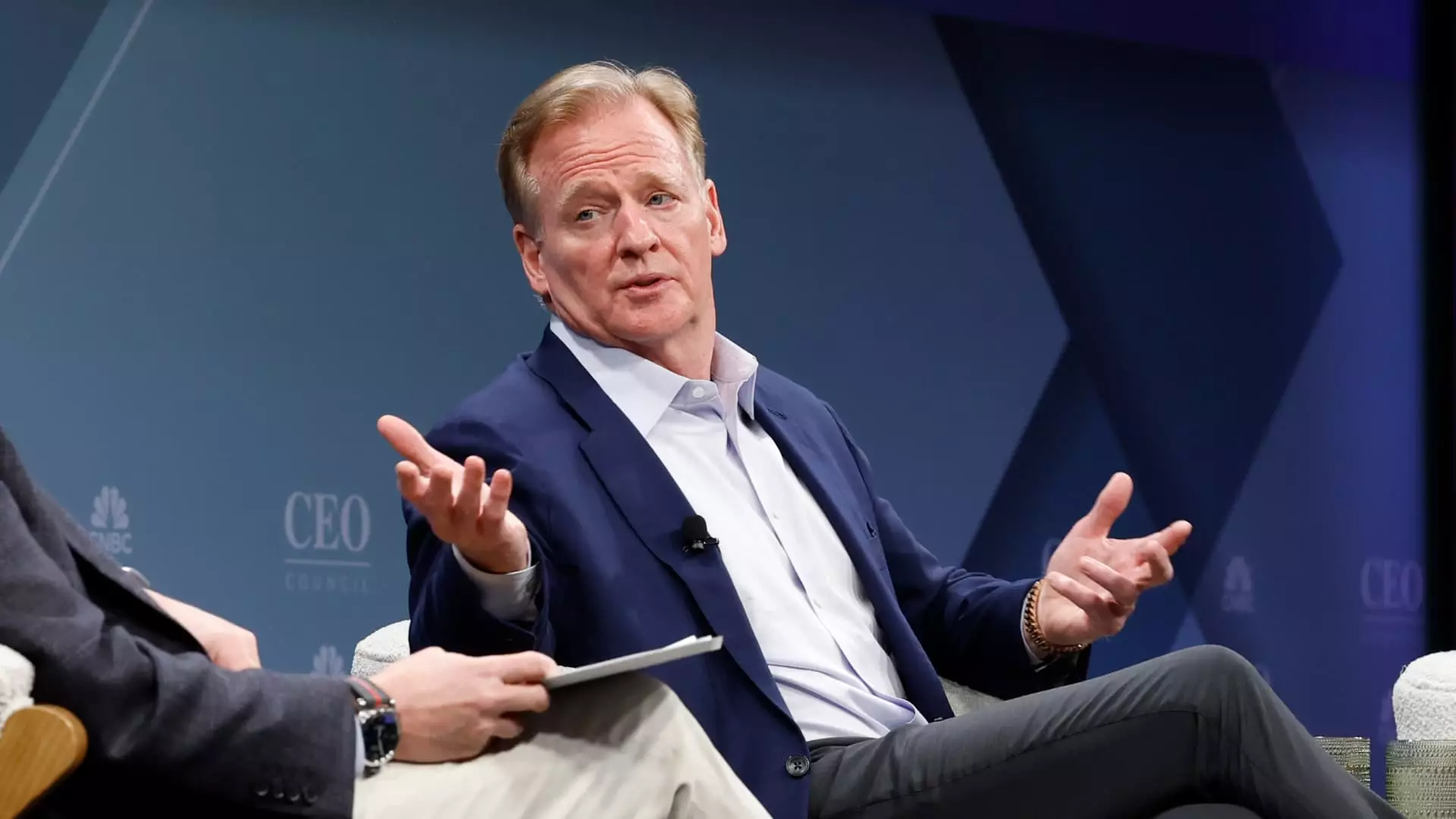In an audacious vision for the future, NFL Commissioner Roger Goodell has announced plans to dramatically expand the league’s footprint internationally, potentially scheduling up to 16 games abroad in the next five years. This declaration, made during the CNBC CEO Council Summit, unlocks a new chapter in the well-tread history of American football and signals a paradigm shift toward a more globally integrated sports model. This move is more than just a strategic expansion; it represents the NFL’s commitment to leveraging its burgeoning fanbase, which currently boasts over 200 million in the United States alone.
The prospect of hosting more games internationally not only promises to elevate the NFL’s brand but could also deepen its financial reservoirs. The current schedule for 2025 features seven international games, which is a remarkable increase and could serve as a springboard for a burgeoning global audience. As Goodell eloquently put it, “International is an open market for us.” This is not just about sport; it’s about business, identity, and positioning the NFL as a pillar of entertainment in a diverse range of cultural landscapes.
Sports Travel: A Goldmine Ahead
In conjunction with this vision, Anthony Capuano, the CEO of Marriott, pointed out that sports-related travel contributes a staggering $50 billion to the economy each year, encompassing around 10% of global tourism. This statistic is not only impressive but also emphasizes how the interplay between sports franchises and hospitality can create unprecedented revenue streams. The NFL’s partnership with Marriott provides a robust model for how the league can maximize the economic potential of its games through synergistic alliances, further solidifying its market share in the global arena.
With international games, the opportunities for sports travel could be amplified. Just envisioning stadiums packed with fans in Brazil, England, and Germany brings to light the bright potential of a truly global NFL. This could catalyze a flourishing ecosystem of fan engagement, tourism, and related economic growth. However, this isn’t simply about expanding the game’s geographical reach; it’s about cultivating a brand that resonates with a worldwide audience and builds robust communities around it.
The Private Equity Game Changer
Goodell’s comments on integrating private equity into the NFL’s operational model cannot be overlooked. He announced that the league had finally opened its doors to private equity investments, allowing firms to stake up to 10% in franchises. The active participation of firms such as Ares Management and Carlyle Group demonstrates a progressive shift toward a more dynamic financial framework within the league. Notably, this step illustrates the NFL’s awareness of changing investment climates and its readiness to adapt, which is a refreshing stance compared to other, more conservative league operations.
Having private equity money flow into franchises signals a level of business acumen that is often missing in traditional sports management. Goodell noted that this financial influx has provided liquidity to teams, enabling them to thrive in a competitive marketplace. It is fascinating to see how the want for sustained growth has compelled teams to look beyond conventional revenue streams to bolster their financial footing. Given that the NFL is the richest sports league in the U.S., this move may soon discourage any antiquated thinking that franchises need to solely rely on ticket sales and merchandise.
Revenue in the Face of Economic Challenges
Wonderful yet precarious, the NFL operates against a backdrop of economic uncertainty characterized by stubborn inflation and inflation-induced tariffs that other businesses have struggled to navigate. However, Goodell insists that the demand for NFL content remains unshaken, which should not just inspire hope but instill determination in the league’s leadership. The projected revenue growth of $23 billion for 2024 cements the NFL as a formidable entity that has weathered storms in the past, allowing it to maintain a direct line to consumer interests amidst a kaleidoscope of external pressures.
In his discussion about franchise valuations—averaging an astonishing $6.49 billion—Goodell emphasized that the future remains bright for the league. He attributed this robust growth to the NFL’s popularity and multi-dimensional business model. The excitement generated from investing in the future keeps valuations buoyant, and as such, this vision for expansion cannot be understated. It is an approach that blends forward-thinking with an understanding of current consumer behavior.
By daring to take international and financial risks, Goodell is not only navigating the NFL into newer waters but ensuring the league is equipped for the unpredictable waves that lie ahead. The ambition to host 16 international games is about more than statistics; it’s about realizing unprecedented potential. In what seems like a play for historic relevance, the NFL is preparing to redefine itself in the global sports market, reinforcing its status as not only a cultural phenomenon in America but a worldwide entertainment powerhouse.

